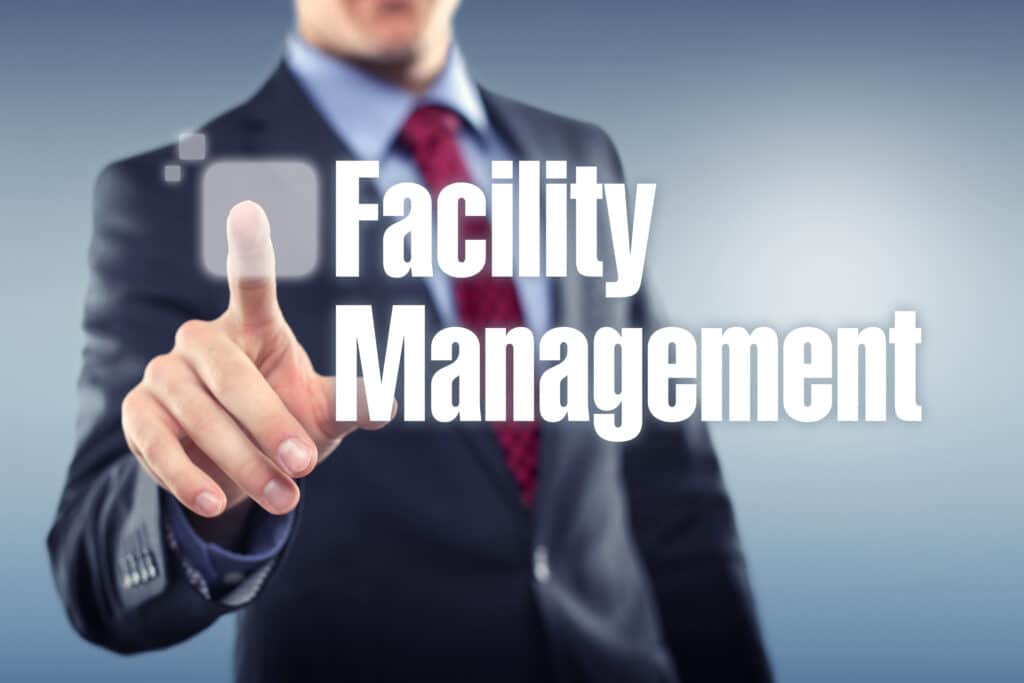Main Reasons to Opt for Total Facility Management for Your Commercial Property
Main Reasons to Opt for Total Facility Management for Your Commercial Property
Blog Article
Leading Benefits of Total Facility Management for Streamlined Workflow
Total Facility Management (TFM) stands for a tactical technique to enhancing functional efficiency by incorporating different solutions, such as upkeep and protection, under a unified management framework. This combination not only reduces redundancies but also leverages data analytics for educated decision-making and predictive maintenance. TFM assists in streamlined interaction amongst stakeholders, aligning procedures with wider organizational goals. However, the inquiry stays: what particular benefits can companies harness from adopting TFM, and just how might these advantages transform their functional landscape?
Boosted Operational Effectiveness
Enhanced operational effectiveness is a primary benefit of implementing total facility management (TFM) techniques. TFM incorporates an extensive approach to handling a center's sources, processes, and facilities, inevitably simplifying procedures. By consolidating different services-- such as upkeep, space, safety and security, and cleansing management-- TFM decreases redundancies and enhances sychronisation amongst various functional features.
The assimilation of technology further enhances this effectiveness. Advanced facility management systems supply real-time information analytics, making it possible for facility supervisors to make enlightened choices that boost workflow and resource allotment. Predictive maintenance techniques, as an example, anticipate devices failings prior to they happen, minimizing downtime and prolonging possession life expectancy.
Furthermore, TFM promotes standardized processes across various departments, ensuring uniformity and top quality in solution delivery. This uniformity lowers functional interruptions and promotes a more collaborative functioning environment. As a result, employees can concentrate on their core obligations, driving efficiency and enhancing total efficiency.

Price Reduction and Financial Savings
Carrying out total facility management (TFM) not just boosts functional performance however additionally substantially adds to cost reduction and financial savings. By consolidating numerous services under a single management framework, organizations can get rid of redundancies and simplify processes, thereby minimizing functional costs. TFM allows far better procurement techniques, enabling firms to work out bulk investing in agreements with vendors and company, causing reduced rates.
Additionally, TFM emphasizes precautionary upkeep, which reduces unanticipated break downs and expands the lifespan of crucial devices. This positive technique not just lowers repair prices yet additionally enhances the reliability of facilitiess, ensuring continuous operations. Additionally, energy effectiveness efforts, commonly a crucial emphasis of TFM, cause considerable cost savings on utility expenses, as facilitiess are maximized for lowered power usage.
Improved Resource Management
Effective source management is a cornerstone of total facility management (TFM), allowing organizations to optimize using their properties and workforce. By carrying out TFM techniques, organizations can comprehensively analyze their source allowance, guaranteeing that every asset is utilized efficiently and properly. This alternative method enables the recognition of underperforming sources and the potential for reallocation or improvement.
Furthermore, TFM promotes the combination of innovation for real-time monitoring of sources, which aids Resources in forecasting maintenance needs and preventing costly downtime. By leveraging data analytics, organizations can make enlightened decisions concerning resource release, eventually enhancing performance and minimizing waste.
Furthermore, TFM advertises a culture of continuous renovation, urging teams to consistently assess and refine their source management methods. Total Facility Management. This positive position not only minimizes functional disruptions but additionally promotes innovation, as employees are equipped to recommend enhancements based upon their firsthand experiences with resource use
Streamlined Interaction Channels
In total facility management, streamlined communication networks play an essential duty in fostering cooperation and efficiency throughout groups. Effective communication makes sure that all stakeholders, consisting of facility managers, maintenance personnel, and solution carriers, are aligned with operational demands and business objectives. By developing clear lines of communication, teams can swiftly attend to worries, share updates, and apply options, thereby reducing downtime and improving efficiency.
With streamlined interaction systems, details is conveniently accessible, enabling real-time updates on upkeep demands, source allocation, and project timelines. This transparency not just reduces misunderstandings yet additionally encourages staff members to make enlightened choices promptly. In addition, structured interaction helps with much better coordination during emergencies, ensuring that all personnel are informed and can react without delay.

Increased Emphasis on Core Activities
A crucial advantage of total facility management is the boosted concentrate on core tasks, permitting organizations to focus on their key business goals - Total Facility Management. By outsourcing non-core functions such as upkeep, protection, and cleaning, business can reroute their sources and power towards calculated campaigns that straight add to their affordable benefit and development
Total facility management integrates numerous functional jobs under a solitary umbrella, cultivating performance and decreasing redundancy. This loan consolidation not just Source simplifies procedures yet likewise improves responsibility, making sure that every element of the facility runs sympathetically without drawing away interest from what truly matters-- core business features.
In addition, this strategy allows workers to dedicate their effort and time to jobs that drive advancement and enhance consumer satisfaction, instead than obtaining bogged down by functional obstacles. With a trustworthy facility management partner dealing with day-to-day procedures, organizations can achieve better agility, react quickly to market changes, and keep a sharper emphasis on their objective.
Ultimately, raised concentrate on core tasks results in boosted overall performance, permitting directory organizations to enhance their market position and meet their strategic goals better. - Total Facility Management
Verdict
Finally, Total Facility Management significantly improves functional efficiency by combining crucial services and leveraging information analytics for educated decision-making. Price reductions and enhanced source management contribute to general financial savings, while structured communication channels foster collaboration among stakeholders. By enabling companies to concentrate on core activities, TFM not only enhances performance yet also enhances market positioning. The integration of these benefits highlights the relevance of TFM in achieving sustainable operational excellence.
Total Facility Management (TFM) stands for a critical strategy to boosting functional performance by integrating various services, such as maintenance and security, under a unified management structure.Boosted functional effectiveness is a main benefit of carrying out total facility management (TFM) strategies. Advanced facility management systems offer real-time data analytics, enabling facility supervisors to make enlightened decisions that improve operations and source allowance.Carrying out total facility management (TFM) not only boosts functional effectiveness but also significantly adds to cost reduction and financial savings.Efficient resource management is a cornerstone of total facility management (TFM), making it possible for organizations to optimize the usage of their possessions and workforce.
Report this page